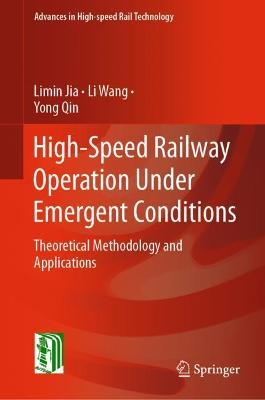This book addresses the current development status of high-speed railways globally and analyzes their operational schemes and practices under emergent conditions. It covers methods and problem-solving philosophy with regard to complexity analysis, capacity evaluation, passenger-flow forecasts, operating strategies, passenger-flow allocation, resource allocation and supporting technologies in the context of serious accidents and adverse environmental influences on train operation and service organization of high-speed railways. The abnormal scenarios, emergent conditions, adverse events and corresponding theoretical and applicational solutions dealing with the train operation both in line and network scale are all from real-world cases related to and designed for Chinese high-speed railway network which is the largest in scale, the highest in complexity and the most difficult in tackling with the complex and diverse climate and geographical environment , and thus makes the book both theoretically rigorous and practically applicable. It not only helps readers consider the train and network interactions from the perspective of complexity science, but also provides them with a philosophical framework and approaches available to construct their own roadmap and problem-solving paradigms in their daily research or management. This book is suitable for researchers, postgraduates and managerial and engineering practitioners in railway-related fields, especially in high-speed railway operation and emergency management.
- ISBN13 9783662630310
- Publish Date 18 July 2021
- Publish Status Active
- Publish Country DE
- Publisher Springer-Verlag Berlin and Heidelberg GmbH & Co. KG
- Imprint Springer-Verlag Berlin and Heidelberg GmbH & Co. K
- Edition 1st ed. 2022
- Format Hardcover
- Pages 441
- Language English
